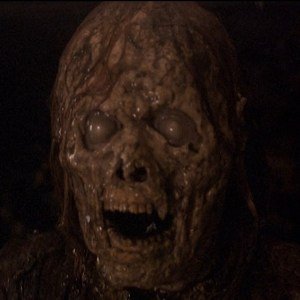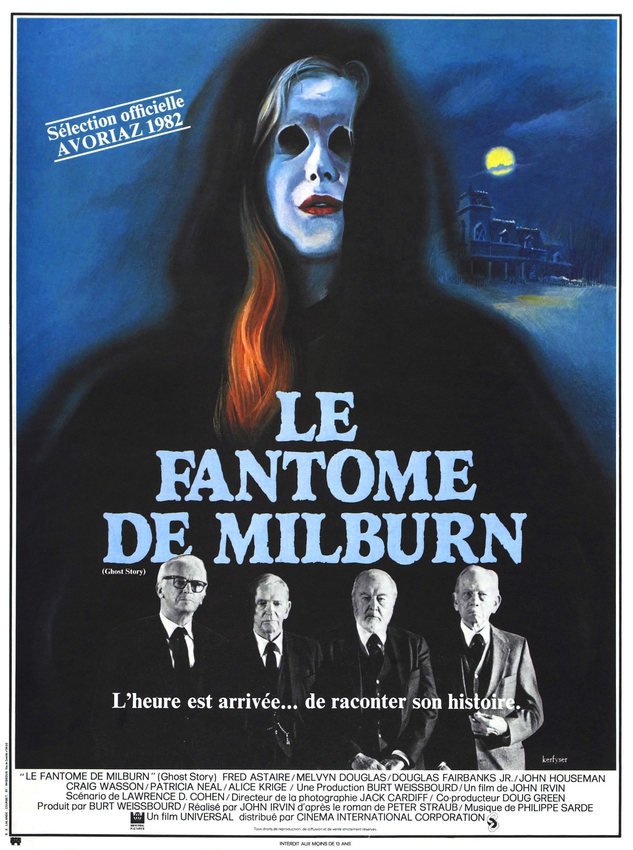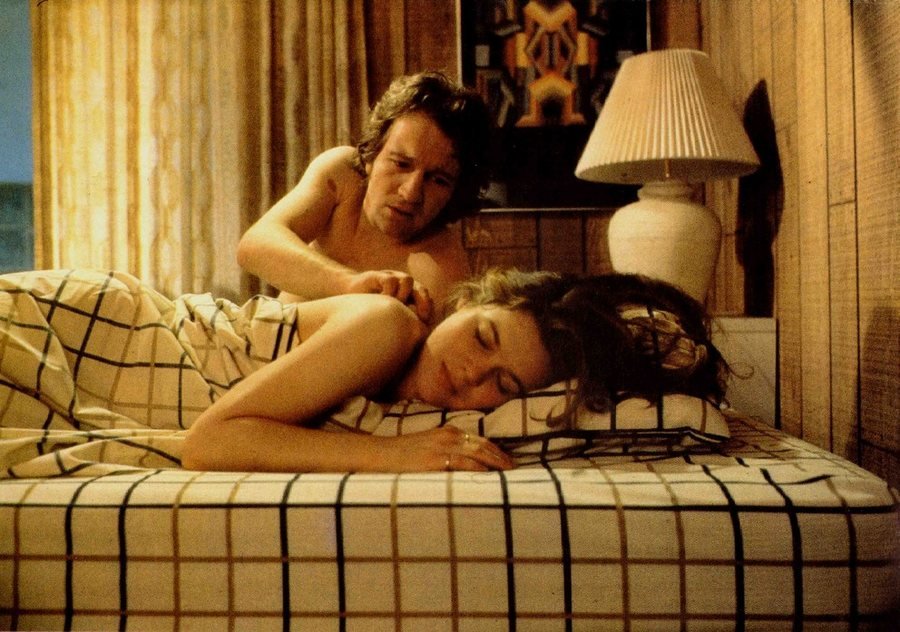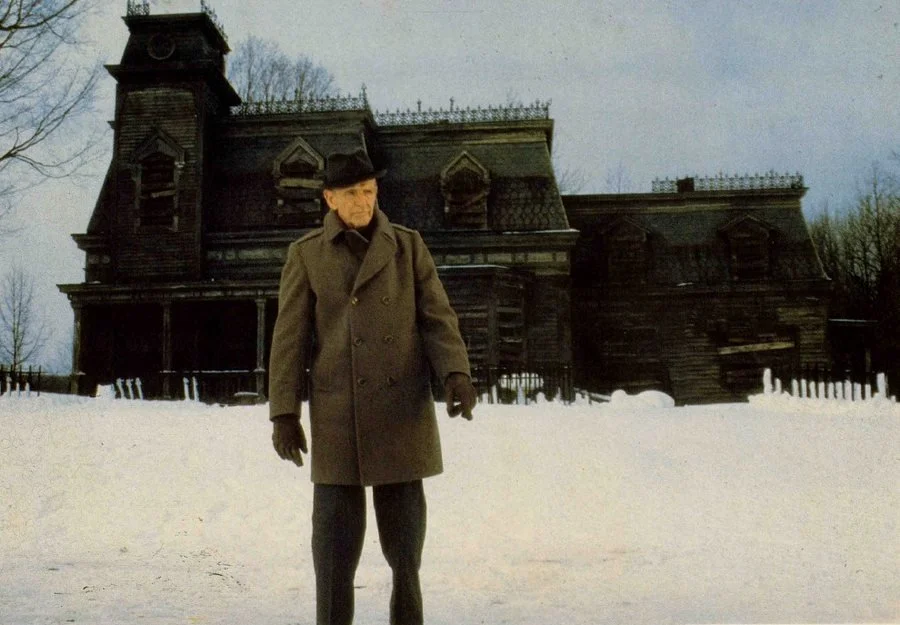GHOST STORY: The Perils Of Wrestling With An Epic Nightmare
Peter Straub's Ghost Story was a major literary event at the end of the '70s, a kind of horror ur-text that could compete with Stephen King's work at the bookstores while also winning critical praise. It was no surprise when it was quickly picked up for a big screne adaptation by Universal. However, adapting this book was never going to be easy because it had an expansive, intricate storyline with a big ensemble of characters plus complex shifts between fantasy and reality. It was simply too big a book to capture in one regular-size feature film - and the resulting film version of Ghost Story shows the strain of trying to boil down an epic for the multiplex.
Ghost Story revolves around a group of elderly men who call themselves the Chowder Society. These aging professionals - Sears James (John Houseman), Ricky Hawthorne (Fred Astaire), Edward Wanderley (Douglas Fairbanks, Jr.) and John Jaffrey (Melvyn Douglas) - have been gathering once a week to swap spooky tales for decades. However, their pastime becomes pointless when horror creeps into their lives: they're all suddenly haunted by nightmares and Edward's son David (Craig Wasson) dies under mysterious circumstances in New York City.
Edward's other son Donald (also Wasson) comes home for the funeral as the members of the society begin to die in strange ways, with the common denominator being the appearance of a mysterious and ghostly woman (Alice Krige) who figures in a tragic event that everyone in the Chowder Society is trying to repress. Donald reveals that he recently had a romance with a strange woman who resembles the woman haunting them - and past and present collide as the survivors realize they must do battle with something beyond the mortal realm.
Because it is an adaptation of a hit novel, Ghost Story is able to get away with a lot of things that other horror movies of the same era couldn't. For one thing, it's unique in the heart of the slasher era to see a film where the main heroes are a group of senior citizens. The film also has a hefty dose of sexuality in its presentation of the female villain - and these moments are handled in a frank but surprisingly mature way, focusing on the desire that drives it as much as the sex itself. The combination of adult content mixed with old-Hollywood stars and a lavish big-budget presentation probably worked against the film, confusing both the teen and older-adult audiences it could've appealed to.
However, Ghost Story has bigger problems than just an odd combination of moods and styles. Lawrence D. Cohen's script radically pares down the novel in ways that not only simplify the tale for movie treatment but also blunt its effectiveness. Its worst mistake is that it gives the central villain a dumbed-down motivation that completely dismantles Straub's most ambitious ideas about the supernatural and evil. He retains two extended flashbacks from the novel that are a crucial part of the story... but these moments also kill the cinematic momentum dead. It's the kind of thing that works in a novel but seldom if ever works in a film. Most importantly, the film ends with a whimper instead of a scream, a state of affairs that will leave a lot of viewers wondering what all the buildup was for.
Direction and editing are also issues in Ghost Story. John Irvin was better known for action and dramas in his career, making this film an oddity in his career. His work suggests he simply isn't comfortable with the task of directing a horror film. He creates an interesting atmosphere thanks to stylish photography by Jack Cardiff and a thunderous Philippe Sarde score but the film's scares are often awkwardly crafted. The latter problem reflects a lot of executive second-guessing that occurred after the film had some poor test screenings, resulting in hastily-added extra shocks.
Besides the technical polish, the best thing about Ghost Story is the cast. The four elderly heroes all give classy and convincing performances: Houseman is amusingly gruff as the group's leader, Astaire is effortlessly charming as the bravest of the group, Fairbanks, Jr. achieves some pathos as the beleaguered father and Douglas does fantastic work in a group argument scene where his character breaks down in tears.Wasson is solid as the younger hero but its Krige who steals the show from everyone, including the four leads. She's fearless as she creates an unknowable yet alluring character, wielding charm and menace with equal skill. It's a shame the film's conception of the character doesn't live up to her work because she could have easily handled the original novel's version of this villain.
Ultimately, Ghost Story is a game attempt that falls short of both the chills and complexity of its source novel. That said, its atmosphere and elegance give it a strange pull, making it the kind of intriguing misfire that remains interesting even when it heads down the wrong road.







